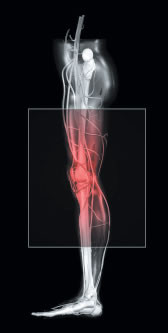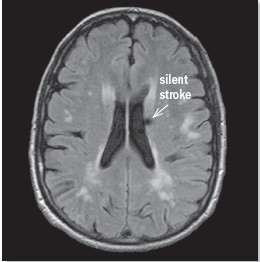
Driving with arthritis pain: Stay comfortable — and safe — behind the wheel

Daily cup of coffee may prevent afib recurrence

Gene-editing therapy lowers harmful blood fats in early study

What is EMDR therapy, and who can it help?

GLP-1 drugs versus bariatric surgery for treating obesity

Two dumbbells, three exercises, and 10 minutes

Easing the emotional burden of IBS

Modify your push-ups to meet your fitness level

What is long QT syndrome?

Stroke survivors may benefit from very low LDL levels
Controlling Your Blood Pressure Archive
Articles
Smartphone apps for blood pressure: A clever choice?
Smartphone apps can remind you to measure your blood pressure and take your medication, which can help you better control the condition. |
Apps that track and chart your blood pressure may be useful. But for now, avoid those that use the phone as a measuring tool.
Stressful job may raise stroke risk
Job strain—defined as having a demanding job in which you have little control—may slightly increase the risk of a stroke. The findings, in the February 2015 Stroke, echo earlier results that show a similar link between heart disease and job strain.
Researchers gleaned the results from 14 different studies that included more than 190,000 men and women from six European countries. Their average age was 42, and the follow-up lasted just over nine years, on average. Job strain was associated with a roughly 20% higher risk of ischemic stroke (the type that occurs when a clot blocks a blood vessel supplying the brain).
Could that leg pain be peripheral artery disease?
The pain of peripheral artery disease may be felt above or below the knee during activity, and will fade with rest. Image: Thinkstock |
The telltale sign is leg pain and fatigue that comes on with activity and goes away with rest.
New thinking about beta blockers
Beta blockers are no longer the first line of defense used to lower blood pressure. |
If you have high blood pressure, there may be better alternatives.
Reduce your risk of silent strokes
As seen on this MRI scan, a silent stroke |
Exercise, eat a healthy diet, and manage blood pressure and cholesterol to lower your odds.
Poor sleep linked to dementia and ministrokes
Images: Thinkstock |
Poor sleep is linked to high blood pressure, diabetes, obesity, and heart disease. Now a study published in Neurology Dec. 10, 2014, suggests that people with conditions that rob them of oxygen and deep sleep are more likely to have changes in the brain that may lead to dementia. Researchers say conditions such as emphysema and sleep apnea reduce the amount of oxygen in the blood during sleep, which can lead to silent, undetectable "ministrokes." Researchers also found that people who spend less time in deep sleep, called slow-wave sleep, are more likely to have loss of brain cells than people who spend more time in slow-wave sleep. Slow-wave sleep is important in processing new memories and remembering facts. The researchers noted that past evidence has shown that using a continuous positive airway pressure (CPAP) machine for obstructive sleep apnea may improve cognition, even after dementia has developed. "Sleep quantity and quality are important to maintain optimal health and prevent disease," says sleep expert Dr. Lawrence Epstein, an instructor in medicine at Harvard Medical School. "By getting enough sleep, you ensure that you are getting all the types of sleep, which is necessary to maintain proper functioning."
Can memory woes foretell a stroke?
Well-educated people who report memory problems may face a higher risk of stroke.
Minor memory slips—such as losing your keys or forgetting an acquaintance's name—are common as we age. However, people who express concern about their memory may have a heightened risk of stroke, particularly if they're highly educated, according to a study in the January 2015 Stroke.
Can deep, slow breathing lower blood pressure?
Long, slow breaths may help dampen nerve activity that governs your blood pressure. Image: Thinkstock |
A device called RESPeRATE may help, but questions remain.
A new way to "beet" high blood pressure?
Images: Thinkstock |
Beets rarely rank high on anyone's list of most-loved vegetables. But here's a reason to give these ruby-red roots another try: beet juice may help lower blood pressure, according to a study in the February 2015 Hypertension.
Beets contain naturally high levels of nitrates, which your digestive system converts into nitric oxide. This compound relaxes and widens blood vessels, which, in turn, lowers blood pressure.
Chemical in food can liners may boost blood pressure
Images: Thinkstock |
Some plastic bottles, food containers, and linings of cans contain bisphenol A (BPA), a chemical that's been under close scrutiny because of its potential effects on human health. Most Americans have traces of BPA in their urine, and some research hints of a possible link between BPA exposure and cardiovascular disease. Now, a study in the September 2014 Hypertension finds that BPA exposure from cans may raise blood pressure.
Sixty older adults drank two servings of soymilk provided one of three ways: in two glass bottles (providing the least BPA), two cans (most BPA), or one glass bottle and one can. Two hours after participants drank from the cans, their urinary BPA levels were much higher than after they drank from two glass bottles. And their systolic blood pressure (the first number in a blood pressure reading) was roughly 4.5 mm Hg higher after two cans versus two glass bottles.

Driving with arthritis pain: Stay comfortable — and safe — behind the wheel

Daily cup of coffee may prevent afib recurrence

Gene-editing therapy lowers harmful blood fats in early study

What is EMDR therapy, and who can it help?

GLP-1 drugs versus bariatric surgery for treating obesity

Two dumbbells, three exercises, and 10 minutes

Easing the emotional burden of IBS

Modify your push-ups to meet your fitness level

What is long QT syndrome?

Stroke survivors may benefit from very low LDL levels
Free Healthbeat Signup
Get the latest in health news delivered to your inbox!
Sign Up











